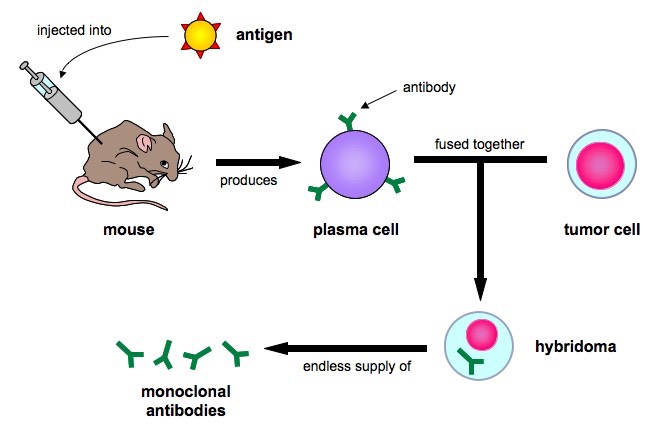Monoclonal antibodies are proteins that are made by a single type of cells. This makes them unique and important because they can help scientists identify, target, and treat specific diseases. Monoclonal antibodies were first created in the 1950s, and since then they've been used to study a wide range of diseases.
Researchers continue to develop new monoclonal antibody treatments for various diseases, and the technology is constantly changing so that more effective treatments are available. To know more about monoclonal antibodies, you can also visit https://www.bosterbio.com/services/custom-rabbit-monoclonal-antibody-development-service.
Monoclonal antibodies are antibodies that are produced by a single kind of white blood cell, or monocyte. Monoclonal antibodies help the body identify and attack specific cells or substances.

Image Source: Google
Monoclonal antibodies (mAbs) are proteins produced by a single clone of cells. mAbs can be used for many purposes including diagnostics, drug development, and research. They have many advantages over other types of proteins, such as their ability to bind tightly to specific targets.
They're used in a variety of therapies, including cancer treatment and vaccine development. One of the most important factors when it comes to making monoclonal antibodies is the purity of the antibody. Monoclonal antibodies must be extremely pure in order to be effective and safe for human use.
Monoclonal antibodies are a type of biologic agent that can be used to treat various diseases. The antibodies are made from a single type of antibody, which makes them more efficient in fighting a specific disease. This is why monoclonal antibodies are so important; they can be tailored to fight a specific disease or infection.
